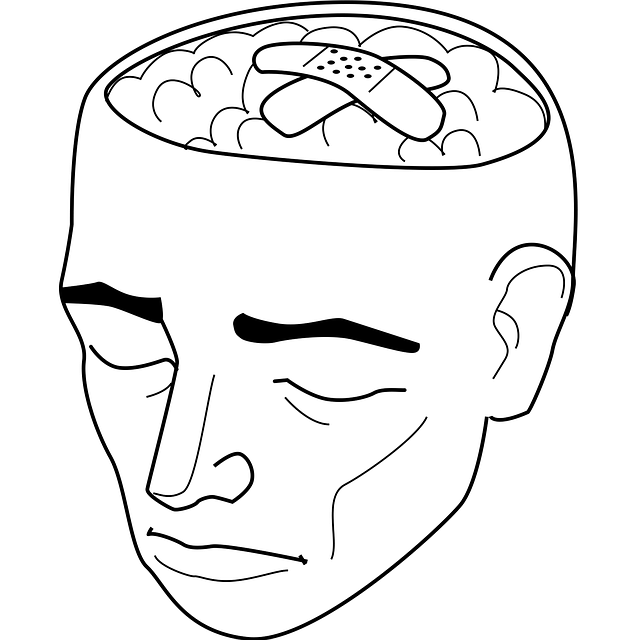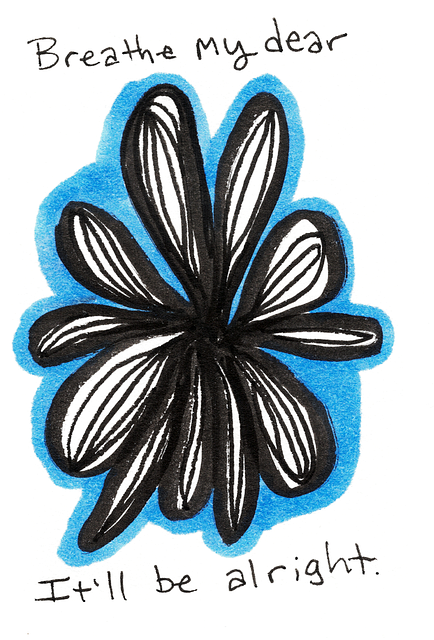Broomfield Couples Communication Issues Therapy focuses on creating safe spaces for individuals with shared mental health experiences to connect and support each other. Facilitators use active listening, open dialogue prompts, and empathy-building exercises to improve communication skills and manage anxiety. Journaling exercises promote self-reflection and emotional processing, while cultivating emotional intelligence aids in managing emotions. The Community Outreach Program offers workshops and counseling sessions for stress management and burnout prevention. A safe, supportive environment with compassion cultivation and mindfulness meditation enhances trust and encourages open dialogue, leading to personal growth and improved mental wellness. Facilitators blend interactive strategies and culturally sensitive leadership to create inclusive interactions, empowering participants from diverse backgrounds.
Mental wellness group facilitation plays a pivotal role in fostering community and healing. This article explores effective techniques for facilitators, focusing on creating safe spaces for members like those facing Broomfield couples communication issues. We delve into strategies derived from Broomfield couples therapy to enhance interaction, promote open dialogue, and build support networks. Additionally, we discuss how facilitators can lead engaging sessions, ensuring every participant feels heard and valued in a therapeutic environment.
- Understanding Mental Wellness Group Facilitation
- Broomfield Couples Communication Issues: A Focus on Therapy Techniques
- Creating a Safe and Supportive Environment
- Effective Group Interaction and Leadership Strategies
Understanding Mental Wellness Group Facilitation

Mental wellness group facilitation is a specialized skill set that goes beyond traditional therapy techniques. It involves creating and managing a supportive environment where individuals with shared mental health experiences can connect, share their stories, and offer each other encouragement. Facilitators play a crucial role in guiding discussions, ensuring every participant feels heard and validated. In Broomfield Couples Communication Issues Therapy, for instance, facilitators often employ techniques like active listening, prompting open dialogue, and encouraging empathy to help couples improve their communication skills and navigate relationship challenges.
Anxiety Relief is one of the primary goals in these groups, as members learn coping strategies from each other’s experiences. Mental Wellness Journaling Exercises guided by facilitators can be a powerful tool for self-reflection and emotional processing. Moreover, cultivating Emotional Intelligence is essential for effective facilitation, enabling facilitators to recognize and manage their own emotions while helping participants navigate theirs.
Broomfield Couples Communication Issues: A Focus on Therapy Techniques

In many communities, Broomfield Couples Communication Issues have become a significant concern, prompting the need for effective therapy techniques to address them. Facilitators play a crucial role in helping couples navigate complex communication patterns that often lead to misunderstandings and conflicts. A key approach involves teaching active listening skills, where both partners learn to pay close attention to each other’s words and non-verbal cues without judgment, fostering deeper connections and mutual understanding.
Community Outreach Program Implementation can be a game-changer in addressing Broomfield Couples Communication Issues. Through workshops and counseling sessions, facilitators can empower couples with tools for stress management and burnout prevention. By incorporating techniques from various therapeutic modalities, such as cognitive-behavioral therapy, facilitators help couples identify and change negative communication patterns, leading to healthier relationships and improved overall mental wellness.
Creating a Safe and Supportive Environment

Creating a safe and supportive environment is paramount when facilitating mental wellness groups, especially for addressing sensitive issues like Broomfield couples communication problems. As a therapist, cultivating an atmosphere where every participant feels seen, heard, and respected is essential. This involves active listening, reflecting emotions, and ensuring confidentiality to build trust. Techniques such as compassion cultivation practices can help foster empathy and understanding among group members, creating a safe space for vulnerable discussions.
Mindfulness meditation exercises can also be integrated into sessions to promote present-moment awareness and emotional regulation. By encouraging participants to focus on their breath and non-judgmentally observe their thoughts and feelings, these practices offer tools to manage anxiety relief effectively. A supportive environment not only encourages open communication but also enables individuals to embark on a journey of self-discovery and personal growth.
Effective Group Interaction and Leadership Strategies

Effective group facilitation for mental wellness requires a blend of interactive strategies and culturally sensitive leadership. In a setting like Broomfield Couples Communication Issues Therapy, facilitators must create an environment that encourages open dialogue, active listening, and mutual understanding. This involves using communication strategies such as reflective listening, where therapists mirror and paraphrase clients’ sentiments, fostering deeper engagement and trust.
Cultural sensitivity in mental healthcare practice is paramount for inclusive group interactions. Facilitators should be adept at recognizing and respecting diverse backgrounds, values, and perspectives within the group. By incorporating cultural sensitivity into their leadership approach, they can ensure that everyone feels validated and empowered to share their experiences authentically. This, in turn, enhances the overall effectiveness of the group therapy session, promoting mental wellness among all participants.
Mental wellness group facilitation plays a pivotal role in fostering communication, understanding, and support among participants. As demonstrated by the case study of Broomfield Couples Communication Issues, specific therapy techniques can significantly enhance group dynamics. Creating safe spaces, coupled with effective interaction strategies, enables individuals to open up and benefit from shared experiences. By adopting these facilitation techniques, mental health professionals can revolutionize group therapy, ultimately improving outcomes for those seeking support.














